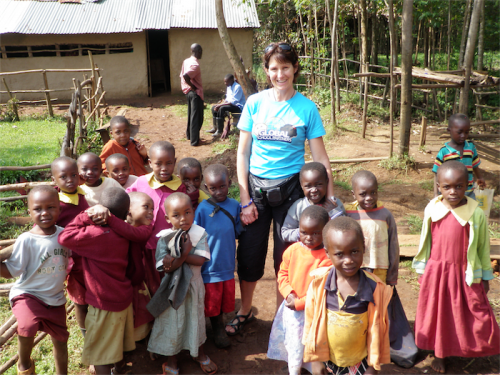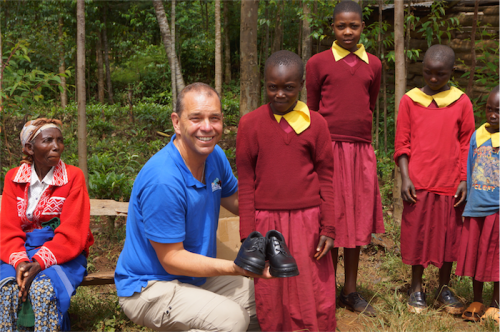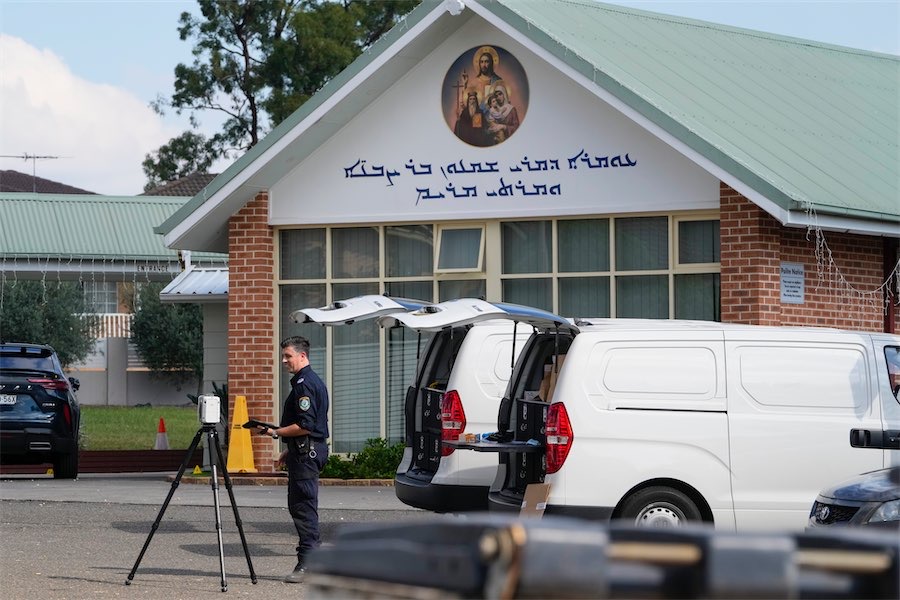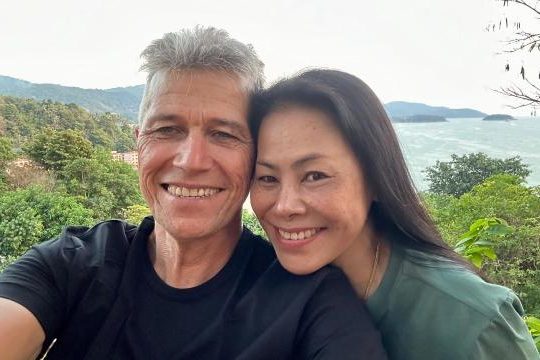
CANBERRA couple Simon and Jann Carroll are changing the lives of not only many children across Kenya and Zimbabwe, but the lives of children in Australia.
Through their not-for-profit organisation Global School Partners, based in Canberra, the couple have created 16 school partnerships between schools in Kenya and Zimbabwe, and schools in Canberra, western Sydney and Newcastle.
The purpose of these partnerships is to enable students to connect, share and learn from one another as well as support African schools through fostering global citizenship with pen pals and the sponsorship of students and the funding of school projects.
The idea was sparked by a volunteer-teacher trip to Thulasizwe Primary school in Orlando West, Soweto, South Africa in 2009 by Jann on the completion of her master’s degree in education. For Jann, who is now a university lecturer, the trip made a lasting impression.
“When she got home, we talked about the education opportunities in Africa,” says Simon, a pharmacist who quit full-time work last year to run the charity.
“And when children in Africa didn’t get an education, they had little chance of getting a job and little chance of getting out of poverty.”

Together in 2010, Simon and Jann created Global School Partners and now have about 4000 African students and 5500 Australian students in partnerships.
Since its inception, the charity has funded a range of projects for the schools in Kenya and Zimbabwe – including the installation of 14 water tanks with guttering, which provide fresh, clean water; 53 classrooms; 33 toilets; electricity for four schools; plus, the provision of sports equipment, stationery and science equipment.
It also supports schools by providing education resources and professional development for teachers and, through its well-being education officers, develops a health plan for each school that focuses on basic hygiene, clean water and sanitation.
“The vision is to enable schools in Africa to be providing education at an acceptable level and to be self-sustainable – that they’ve got students and the income to buy new textbooks every year, have working toilets, classrooms, computers and water.
“We’ve got two schools that are pretty close to our being able to walk away from supporting them financially.”
In Australia, the charity is also making a big impact on students with many taking their own initiative to start fundraising campaigns including a 12-year-old student who cycled 100km to raise enough money to put water in one school and another who, instead of wanting birthday presents at her party one year, asked guests to donate to Global School Partners.
“They are really getting a sense of the world – that not everyone has three TVs and two cars and an iPhone,” he says.
“It’s a dose of reality – these kids in Africa might not have anything but they are like them and here they can assist them.”
Simon says Global School Partners is purely volunteer-run with all money going straight back into the schools they support.
He said although Australian partner schools do raise funds to help the charity, 60 per cent of their funds are raised through private donors, philanthropic foundations and company sponsorships.
“We don’t keep it for admin or marketing and when I travel we pay for that personally,” he says.
“We want to retain the heart of what we are doing – if we used $1000 in travel – then less of that money goes to the school.”
He says the charity’s board is now looking to expand to other developing countries in Asia.
And after speaking to one of the Canberra partner schools, which has a big Sudanese community, they are also looking to create a new model to help refugee students’ parents, who need help to adjust to their new lives in Australia.
“We want to help the families, the parents of these children. Many of these parents are low-English-speaking, and they have come into the country after facing a lot of violence,” Simon says.
“We want to look at a program where we would support those refugee families so they can integrate into Australia better.
“Our idea is to build it as a model that’s not just for Sudanese refugees but all refugees.”
Simon says his big-picture vision for Global School Partnerships is to see all schools in Australia partner with a school in a developing country and the program flow on to other countries around the world.
“How strong would that be?” he says.
“There’s so many children not getting an education – there is no lack of need.”
Visit globalschoolpartners.org.au
Who can be trusted?
In a world of spin and confusion, there’s never been a more important time to support independent journalism in Canberra.
If you trust our work online and want to enforce the power of independent voices, I invite you to make a small contribution.
Every dollar of support is invested back into our journalism to help keep citynews.com.au strong and free.
Thank you,
Ian Meikle, editor




Leave a Reply